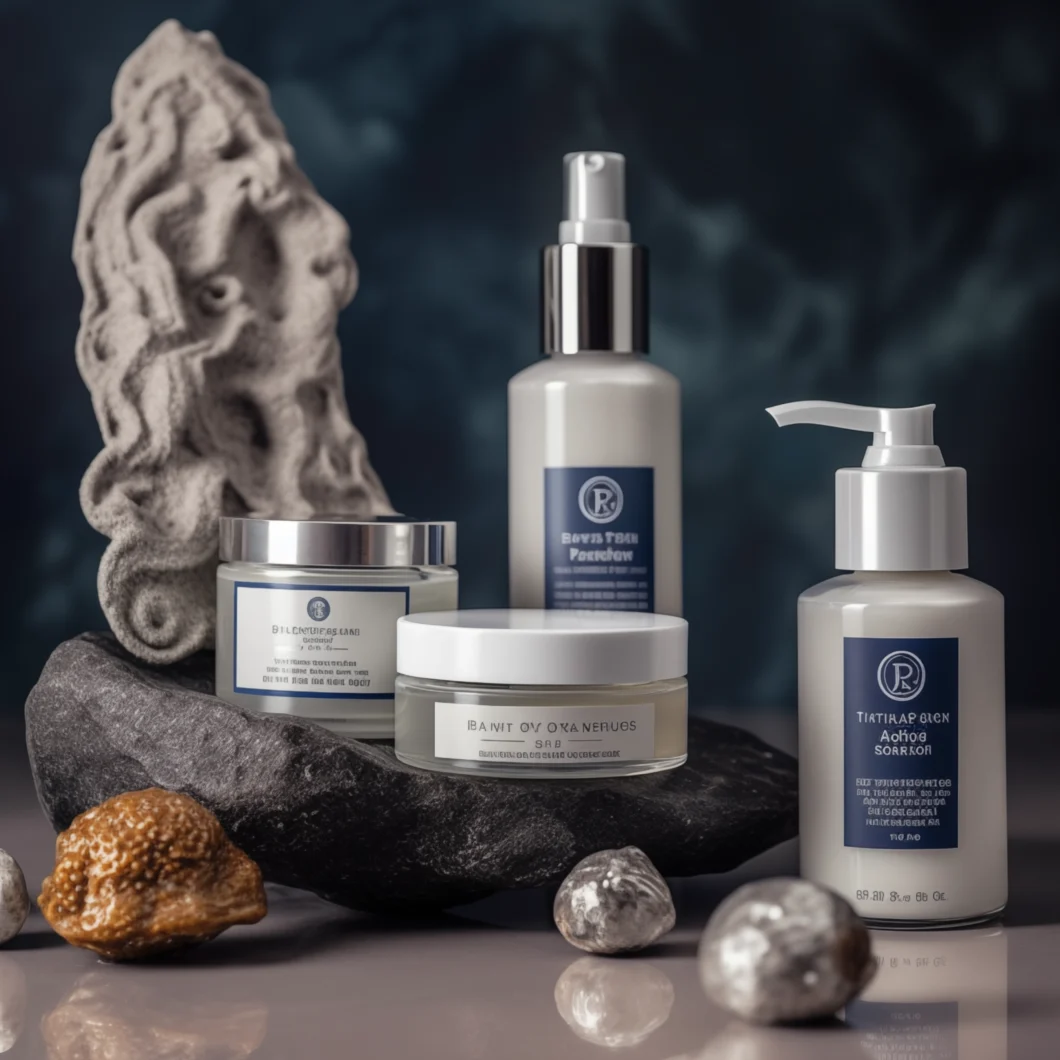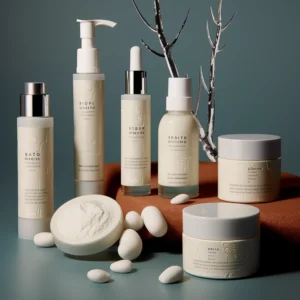Probiotic skincare is gaining traction as a natural approach to enhancing skin health, but it raises the question: what exactly are probiotics, and how do they benefit our skin?
In this article, I will unpack the definition and types of probiotics used in skincare, explore their numerous advantages for improving skin appearance, and explain the science behind their effectiveness. Additionally, I will highlight the latest research in the field and provide guidance on selecting the right probiotic products for your skincare routine.
Discover how these beneficial microbes can transform your complexion.
Key Takeaways:
- Probiotic skincare can improve skin health and appearance by balancing the skin’s microbiome.
- Understanding the mechanisms of how probiotics work in skincare can help in choosing the right products for your skin type.
- Research and studies have shown promising results for the effectiveness of probiotic skincare products, but it’s important to choose products with the right probiotic strains and formulation.

What are Probiotics in Skincare?
Probiotics in skincare involve the incorporation of live microorganisms, particularly beneficial bacteria, to enhance skin health by supporting the skin microbiome.
Strains such as Lactobacillus, Bifidobacterium, and Streptococcus thermophilus are essential for maintaining a balanced skin flora, combating harmful bacteria, and promoting overall skin wellness.
As advancements in skincare continue to evolve, I have observed a growing trend in the use of topical probiotics within cosmetic formulations. These innovations hold the potential to improve skin barrier health and address various skin conditions, marking the beginning of a new era in skincare treatments that leverage the benefits of good bacteria.
Definition and Types of Probiotics
Probiotics are live microorganisms that can provide health benefits when applied to the skin or ingested, particularly in relation to skin health. I focus on strains such as Lactobacillus, Bifidobacterium, and Streptococcus thermophilus, each possessing unique properties that positively affect the skin microbiome and address various skin conditions.
These beneficial bacteria play a crucial role in enhancing the skin’s natural barrier, reducing inflammation, and even preventing acne breakouts. Scientific research has shown that specific strains can help restore balance to the skin’s flora by inhibiting harmful pathogens, thereby promoting a clearer complexion.
Certain Lactobacillus strains are recognized for their hydrating properties, making them vital in formulations designed to combat dry skin. Understanding the classifications of these probiotics is essential, as each strain operates through distinct mechanisms that target various skin concerns, from aging to sensitivity.
This intricate relationship between the skin and microorganisms highlights the potential of probiotics as a natural approach to achieving optimal skin health.
Benefits of Probiotic Skincare
I find that probiotic skincare provides a wealth of benefits that significantly enhance skin health, making it a valuable addition to any skincare routine.
These products effectively improve hydration, reduce inflammation, and strengthen the immune system’s ability to combat skin conditions such as acne, eczema, and rosacea.
Clinical studies have demonstrated that incorporating probiotics into topical treatments not only helps restore balance to the skin microbiome but also promotes overall skin health and appearance, particularly for individuals with sensitive skin types.
Improving Skin Health and Appearance
I have observed that probiotics significantly enhance skin health and appearance by promoting hydration and addressing various skin conditions such as acne, eczema, and rosacea. By restoring balance to the skin microbiome, probiotics improve the integrity of the skin barrier, leading to a healthier complexion and a reduction in visible signs of aging.
These beneficial microorganisms increase moisture levels, which helps prevent dryness and flakiness—a common challenge for individuals dealing with conditions like eczema. They play a crucial role in reducing inflammation and redness, making them an excellent option for those with sensitive skin.
In my experience, users often notice an improvement in skin texture, which becomes smoother and more resilient over time. With consistent use, probiotics can also minimize the appearance of pores and fine lines, resulting in a more youthful and radiant complexion that many of us aspire to achieve.
How Probiotics Work in Skincare
Understanding how probiotics function in skincare allows me to appreciate the intricate mechanisms through which these beneficial microbes interact with our skin.
Probiotics play a significant role in skin health by enhancing the production of antimicrobial peptides, which help maintain a balanced skin microbiota by addressing dysbiosis and harmful bacteria.
Furthermore, they contribute to strengthening the skin barrier, improving hydration levels, and offering protection against environmental stressors like UV radiation. This demonstrates their crucial role in the overall effectiveness of topical treatments within skincare routines.
Understanding the Mechanisms
The mechanisms by which probiotics operate in skincare involve a complex interaction with the skin microbiome, emphasizing the prevention of dysbiosis and the enhancement of the skin barrier. By producing antimicrobial peptides, probiotics help regulate the balance between beneficial and harmful bacteria, ultimately leading to healthier skin.
These beneficial microorganisms not only support the skin’s natural defenses but also promote the production of essential compounds, such as short-chain fatty acids, which can soothe inflammation and improve hydration levels. This synergistic effect strengthens the overall skin barrier, making it more resilient to environmental stressors and pathogens. For more insights on the topic, check out Probiotic Skincare: Does It Really Work?.
Consequently, incorporating probiotics into skincare regimens carries significant implications for skin health, especially in addressing common conditions like acne, eczema, and rosacea, where dysbiosis often plays a critical role.
Harnessing the power of probiotics provides a promising and holistic approach to achieving a glowing, balanced complexion.
Evidence for Probiotic Skincare
I recognize that the efficacy of probiotic skincare is backed by a growing body of research and clinical trials demonstrating their beneficial effects on various skin conditions.
Studies published in reputable journals, including the International Journal of Immunopathology and Pharmacology, provide compelling evidence that probiotic products can significantly enhance skin health by alleviating symptoms associated with conditions such as eczema, acne, and rosacea.
As a result, dermatologists are increasingly endorsing the incorporation of probiotics into skincare routines, underscoring their role in improving skin barrier integrity and overall skin appearance.
Research and Studies
Numerous clinical studies have explored the efficacy of probiotic products in skincare, demonstrating their potential to alleviate symptoms of various skin conditions and enhance overall skin health. As I review the findings, I note that dermatologists have observed significant improvements in patients’ skin barrier function, hydration levels, and reductions in inflammation associated with these innovative formulations. For more insights on this topic, check out Probiotic Skincare: Does It Really Work?.
These studies utilized diverse methodologies, including randomized controlled trials, to rigorously evaluate the impact of probiotics on conditions such as acne, eczema, and rosacea. For instance, one trial that examined the application of a topical probiotic cream reported a remarkable decrease in acne lesions within just four weeks, highlighting the role of beneficial bacteria in managing inflammatory responses.
The findings underscore how probiotics can contribute to a healthier microbiome, potentially leading to long-term improvements in skin resilience. Such compelling evidence has encouraged many skincare professionals, including myself, to advocate for the incorporation of probiotic-infused products in treatment plans, signaling a significant shift toward more holistic approaches in dermatological care.
Choosing the Right Probiotic Skincare Products
Selecting the appropriate probiotic skincare products plays a crucial role in my skin health and overall skincare routine, making it essential for me to understand the key factors to consider.
I prioritize products that contain specific strains of beneficial bacteria, such as Lactobacillus and Bifidobacterium, and I also take into account the inclusion of prebiotics and postbiotics to enhance efficacy.
Additionally, I assess my individual skin needs, such as sensitivity or hydration requirements, to choose topical probiotics that effectively support my skin microbiome balance and promote healthy skin.
Factors to Consider
When selecting probiotic skincare products, I consider several key factors, such as the specific skin condition I am targeting, the strains of beneficial bacteria included, and the overall product formulation. It is essential for me to evaluate how effectively probiotics can address my skin’s needs, whether it be hydration, inflammation, or sensitivity.
Along with these foundational aspects, I prioritize ingredient transparency. Understanding what is in the product significantly influences my decisions. I also find that product reviews are critical; they provide valuable insights into the experiences of real users, helping me gauge the potential effectiveness and tolerability of the product. For more information on effective skincare ingredients, check out this article on Probiotic Skincare: Does It Really Work?
Dermatologist recommendations are an invaluable resource for me, ensuring that the probiotic I choose aligns with my unique skin concerns. Ultimately, selecting a product that resonates with my individual skin challenges leads to the most satisfying results, transforming my skincare routine into a beneficial and nurturing experience.



